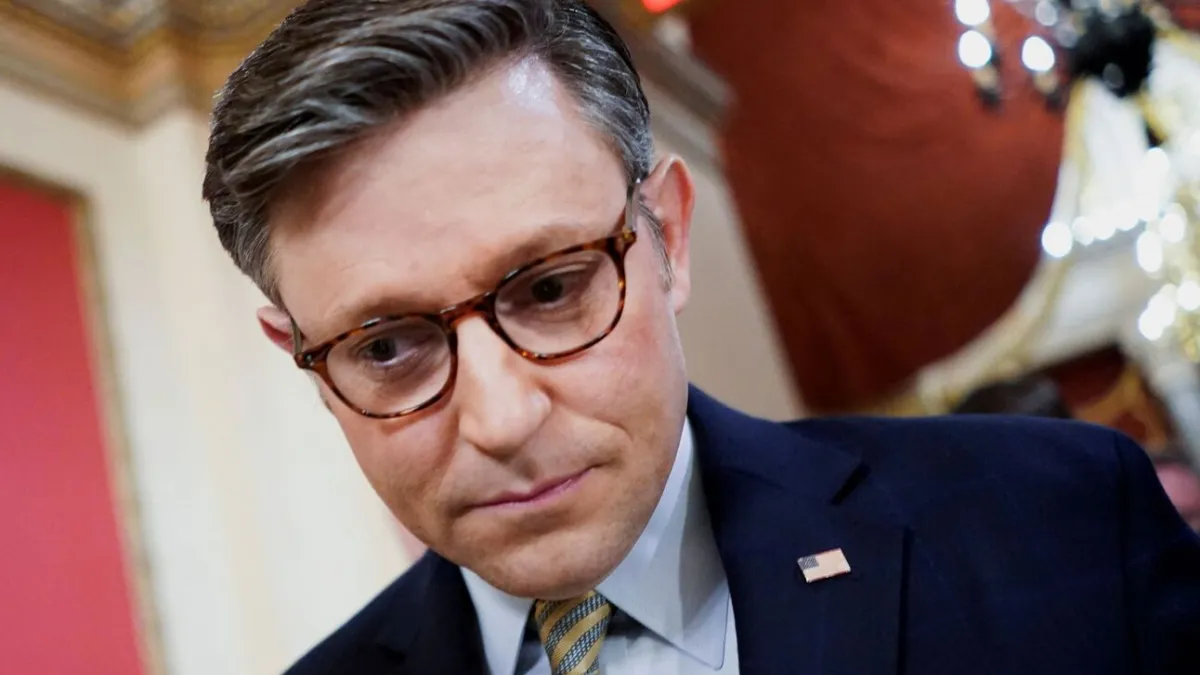
House Republican leaders had hoped to make significant progress this week resolving lingering internal differences on key elements of their massive budget reconciliation package — plans for trillions of dollars in tax cuts as well as potential cuts to Medicaid and food assistance programs. But many of those intraparty battles remain unresolved, even as Republican leaders hope to have three House committees advance those elements of the plan next week.
“On one end are hard-line conservatives pushing to make the package deficit-neutral, advocating for changes to Medicaid to achieve that goal,” The Hill’s Mychael Schnell wrote Friday. “On the other end of the party are moderates concerned about changes to social safety net programs, and centrists from New York, New Jersey and California pushing for an increase to the state and local tax deduction cap, an expensive endeavor.”
Ruling out some cuts to safety net programs: House Republican leaders this week nixed some cuts they had been considering to generate savings in Medicaid and federal food assistance programs. House Speaker Mike Johnson told reporters that the GOP plan would not cut the percentage of state Medicaid costs that the federal government pays, and House Agriculture Committee Chairman Glenn Thompson told The Washington Post that federal anti-poverty food assistance funding won’t be rescinded. The remaining menu of options in unlikely to yield the $880 billion in savings that Republicans are seeking to get from programs overseen by the House Energy and Commerce Committee.
Targeting smaller tax cuts: Republicans set a goal of finding $2 trillion in total spending cuts, but they have struggled to reach that target. That has forced them to scale back the tax cut package they are pursuing because GOP hard-liners have insisted that the size of tax cuts in the Republican plan be directly linked to the level of spending cuts.
House Speaker Mike Johnson reportedly told his conference members Thursday that he is now aiming for $1.5 trillion in spending cuts and a downsized package of $4 trillion in tax cuts, not $4.5 trillion — a shift that means it will be much harder to make the 2017 tax cuts permanent as Trump and other key Republicans want. “Republicans talk a big game … about reining in reckless spending,” House Budget Chair Jodey Arrington told reporters. “You won’t get the full permanency in the tax policy on all the provisions if we don’t get to the $2 trillion in savings, and that’s unfortunate.”
Raising taxes on the rich? As they seek to dial back the overall cost of their tax cuts, the idea of raising taxes on the rich has surfaced repeatedly, fueled this week by news that President Donald Trump himself is pushing for the creation of a 39.6% tax bracket for individuals earning at least $2.5 million, or couples making $5 million. The current top tax bracket is 37% and applies to income over $626,350 for individuals or $751,600 for married couples filing jointly.
Trump reportedly asked for that tax change in a Wednesday phone call with Johnson. He reportedly also pressed for the elimination of the carried-interest tax break that benefits venture capital and private equity investors. Revenue from those changes would give Republicans more room to extend their 2017 tax cuts and enact Trump’s campaign promises to end taxes on tips, Social Security benefits and overtime pay. A new tax rate on top earners would raise a relatively paltry $67.3 billion over a decade, according to an estimate reportedly provided to Bloomberg News by the Tax Foundation.
Mixed messages from the president: Trump continues to publicly deride the idea of a tax hike on the wealthy, warning that it would drive rich people out of the country and cost Republicans politically. He offered a mixed message on Friday morning, when he wrote on social media:
“The problem with even a ‘TINY’ tax increase for the RICH, which I and all others would graciously accept in order to help the lower and middle income workers, is that the Radical Left Democrat Lunatics would go around screaming,‘Read my lips,’ the fabled Quote by George Bush the Elder that is said to have cost him the Election. NO, Ross Perot cost him the Election! In any event, Republicans should probably not do it, but I’m OK if they do!!!”
That’s not exactly a full-throated endorsement of an idea that many Republicans see as antithetical to the core tenets of their party. Dozens of Republican lawmakers — 44 senators and 191 House members — have signed a pledge to oppose all tax increases.
A standoff over SALT: Republicans from blue states have also been negotiating for an increase in the deductibility of state and local taxes, an expensive change opposed by fiscal hawks that complicates the math for the larger package. The so-called SALT cap was set at $10,000 a year by the GOP’s 2017 tax law, and four Republican lawmakers from New York on Thursday rejected a proposal to lift that limit to $30,000.
The bottom line: Republicans still have a lot of work to do.